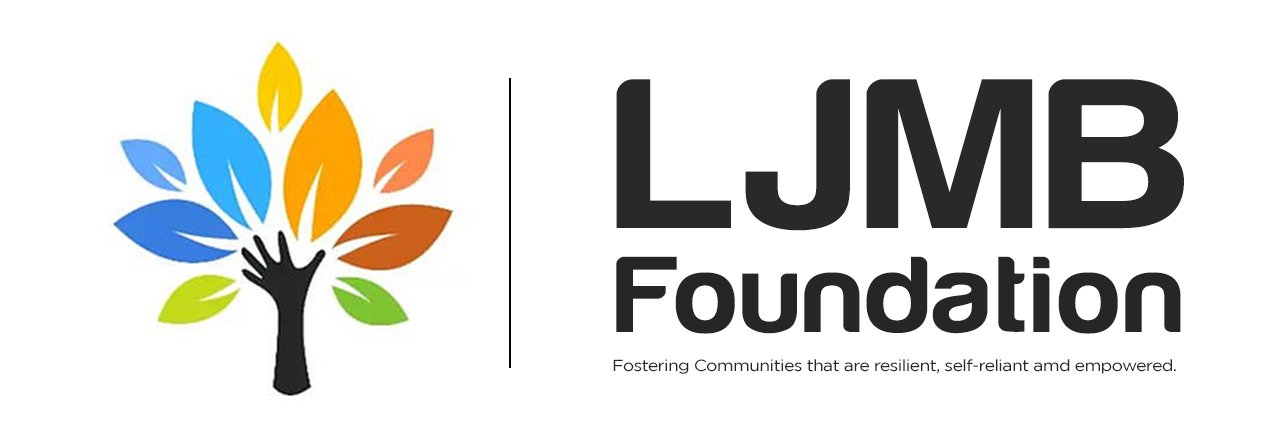… a tribute to my mother... My mother, Rosemary passed away in the year 2007 after a long illness – heart problem. She was not only a mother to me but also my best friend. She taught me how to care for others without expecting anything in return. She was an angel whose light keeps on shining amongst those she touched. She will always be remembered and cherished in our hearts. I first realised the graveness of her problem back in the late 80's when after visiting Mzuzu Central Hospital, my mother was told that she needed a surgery that could not be done in Malawi. Without the surgery, she had no chance of surviving. My parents did not have the financial capabilities to undertake that surgery and the government did not come in to help us. We were just waiting for the day when she would pass away. I am aware that not everyone believes in God but in this case I prefer to say that miraculously, by the grace of God, my father got a scholarship to go and study theology in the RSA accompanied by his family. That trip made it possible for my mother to have her life saving surgery. This surgery was supposed to be done every five years (was not done as advised due to financial constraints) and she required regular medical check ups (monthly). Since her case required specialist' attention, she had to travel almost once per month to Blantyre from Lilongwe for medical checkups at a private hospital. And she had to be seen by a cardiologist who flew in from RSA once in 3 months at that hospital. Special thanks to my mother's doctor who took good care of my mother and gave us the right advices. Unfortunately in 2007 my mother passed away in India from post surgery complications. Without the help of our closest family members, relatives and friends from Serbia (Ilic family), Germany, Denmark (Skadkaer–Hansen family) and Malawi including the special care provided by the medical staff in Malawi, RSA and India, my mother could not have lived to see my children. Thank you all for being there for us when we needed you most. ...you experienced it too... My experience above is shared by the general Malawian – majority in terms of population and minority in terms of wealth held. Health care is supposed to be a basic need not a luxury as it is now. Everyone should be able to access quality health care regardless of social status. The life of an individual should come first and not the status of the person. With our health care system in tatters as confirmed by WHO (2000) (Malawi is ranked 185 with regard to overall health performance in the world), we - the minority in terms of wealth - are the ones who suffer most. ...why... a) Because we need to find our own resources to travel to hospitals. Most complicated cases are treated either at Kamuzu Central Hospital in Lilongwe or Queens Central Hospital in Blantyre. Not forgetting private hospitals like Mwaiwathu and Seventh Day Adventist in Blantrye. Imagine how difficult it might be for a person from Chitipa who is living on less than a dollar a day (MK570) to find his/her own means of transport to either Blantyre or Lilongwe for treatment every month. A trip that might cost most probably around MK15,000.00. Let alone to fund a medical trip outside the country which might cost minimum $10,000.00 (over 5 million Malawi Kwacha). With that in mind, I am eager to see which and whose treatments carried outside Malawi are state funded. And to know the selection criteria because I have a feeling that the majority of these state funded medical treatments outside Malawi are not for ordinary citizens like you and me. Yet we are the ones who needs it most. b) When we finally make it to the hospitals, we do not receive enough care. Partly, due to lack of food, medicine, specialised doctors, medical staff and their motivation. The few people I talked to over the last days, indicated that lack of medical staff and medicine is their main concern when it comes to the health care system in Malawi. For a country that has medical graduates every year it comes as a surprise to be facing shortages of medical staff. But the answer lies in the fact that most medical graduates leave Malawi in search of better employment opportunities elsewhere. A trend affecting most low-income countries (Sharples 2015). And some prefer to work in NGOs currently operating in Malawi as they provide better employment packages than government hospitals. ...solutions... As one of the basic needs of human beings, it would be important for the government to ensure that the national budget allocated to the health sector is at least in line with the Abuja Declaration Target of 15%. However, instead of meeting that target our government is reducing the budget allocated to the health sector. For example, the budget to the health sector as a percentage of the national budget fell from 11% (2013/2014) to 8% (2014/2015) (African Economic Outlook 2015). As a result shortages of medical staff and medicine is inevitable as not enough resources are allocated for their acquisition. We all have a right to choose an employer and so do the medical staff. We can not therefore force them to work in public hospitals. But we can ask them to repay their training costs either in cash or to work in public hospitals for a specific period of time (1 - 3 years). This can be a short-term solution. And can only work if government is willing to employ all graduates upon completion of their studies. It takes a lot of taxpayers money to train the medical staff only to lose them to other countries and institutions. May be the benefiting countries should take a strong stance on ensuring that our country is appropriately compensated for all the medical staff that are emigrating to developed countries in search of greener pastures. These countries are not spending anything on training these doctors and nurses but they are getting qualified medical staff. They are using our scarce resources (studies done in Malawi) while depriving us of the right to quality health care. I need to stress that I appreciate all the help we get from donors. It is crucial for the survival of our nation but I think that this medical brain drain is a problem that should be tackled separately. I know that there are measures in place to curb this problem but definitely they are not working since no changes are being noted. Nonetheless, in order to have a long lasting solution, it is the government's duty to improve the working conditions in the public hospitals. This would motivate the staff. It is easier to retain motivated staff members than disgruntled ones. However, considering our economic situation, it will take a lot of time, effort, sacrifices and cooperation of the whole nation for this point to materialise. We will have to work together as a nation and make quality health our priority. Not an easy feat to achieve but also not impossible. This can be done for example by effectively and efficiently utilising our minimal medical resources. The tendency to misuse resources should be minimised if not stopped. For example, using official vehicles for personal errands and stealing drugs should not be tolerated at all. I commend the government for taking a step in attempting to curb the drug stealing problems by announcing plans to install CCTV cameras in central hospitals. I admit that with the low salaries earned by government employees, it is sometimes tempting to misuse these resources as most would say “tikakudyerani kuti – where are we going to eat?”. But if we want to improve our health system, we have to start from somewhere and I hope that the people in higher positions will be leading by example. According to my sources, the only cardiologist in Malawi is the one working at a private hospital in Blantyre. However, considering that in most cases, specialists require not only special trainings and higher pay, but also special working environments, I have to lower down my expectations on this one. Our government can not sustain the running costs of these specialists. I strongly believe that at the moment, we should focus on improving basic health before jumping to the specialist area. The lack of food in some hospitals could be a momentary lapse on part of the government which might be directly linked to the amount allocated to the health sector budget. And I hope that necessary measures will be taken to ensure that patients in these hospitals are fed as needed. We are already facing hunger as a nation this year, thus making it difficult for guardians to bring food to the hospitals. The government should not endanger the patient's recovery process in hospitals because of lack of food. ...word of thank you... There is a lot that can be done to improve the health care system in Malawi as seen above. It will take time and the nation's effort to change but it is worthy fighting for. I would like to thank all the medical staff including the supporting staff working in the public hospitals in Malawi. We might be dissatisfied with the care we get and yes, things could be better but considering your working conditions you are trying. You could emigrate to other countries but you chose to stay in Malawi and serve us. To that, you are our heroes, thank you....

